<Technical cooperation>
Capacity Development Project for Efficient Transmission and Distribution System in Tanzania Phase 2
November 2021 - April 2025
in preparation
Project for Enhancement of Operation and Management of Cambodian Transmission System
December 2017 to March 2023
Cambodia has been facing an urgent issue of stable power supply since the power demand has rapidly grown in the country. In December 2017, JICA started a technical cooperation project aiming at capacity improvement of power system planning, power system operation, facility maintenance and restoration in the Cambodian Electricity Company (Electricite du Cambodge: EDC). An OPMAC expert in organizational/institutional building engaged in capacity building of EDC at organizational/institutional level for stable power supply based on the TQM (Total Quality Management) approach as a team member of the JICA expert team.
FY2022 Ex-Post evaluation Package III-3 (Indonesia and Bangladesh)
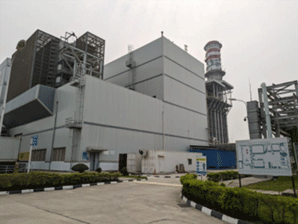 |
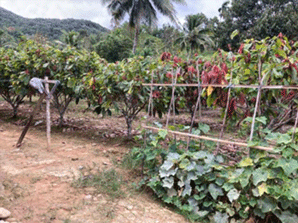 |
November 2022~February 2024
This assignment was an ex-post evaluation of two projects (Indonesia and Bangladesh) funded by the Private Sector Investment Finance (PSIF). PSIF is a scheme to support projects in developing countries implemented by private enterprises through equity participation and loans. The scheme is utilized when the private sector is expected to promote development in developing countries, but it is difficult for financial institutions in the private sector to finance projects. This evaluation assessed the effectiveness of the PSIF projects, and the recommendations were made for improving the methodologies of the ex-post evaluation on PSIF projects.
FY2022 Ex-Post Evaluation: Package I-1 (India)
 |
 |
September 2022-November 2023
In this work, the ex-post evaluations were carried out for three Japanese ODA loan projects in India, using the six OEDC/DAC evaluation criteria, and recommendations were made to improve project effectiveness and enhance sustainability. The three target projects were: (i) “Program for Japan-India Cooperative Actions towards Sustainable Development Goals in India” which was a program loan project (development policy lending) to support the achievement of the SDGs in India through a collaboration between Japan and India, (ii) “Ganga Action Plan Project (Varanasi)” which was an infrastructure development loan to develop sewage and sanitation facilities in the Hindu holy city of Varanasi, and (iii) “New and Renewable Energy Development Project (Phase 2)” which was a development finance loan to finance renewable energy projects in India through government-owned financial institutions. Regarding (ii), a detailed analysis of Human Well-being (HWB) was made, and changes in the subjective well-being/life satisfaction of beneficiaries before and after the project implementation and the factors behind these changes were analyzed.
Preparatory Survey for Agriculture and Rural Development Two Step Loan Project
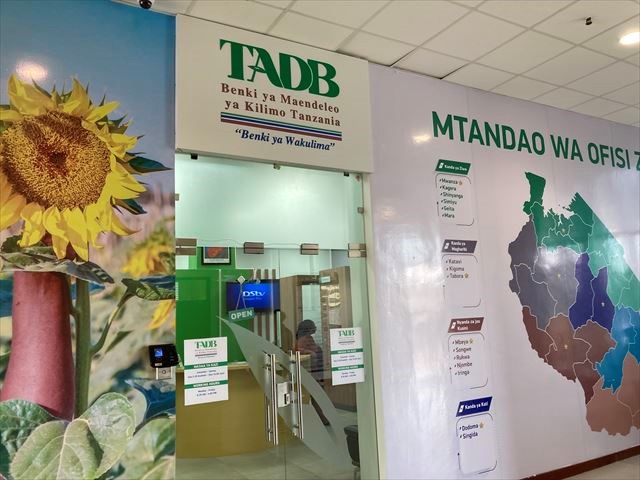 |
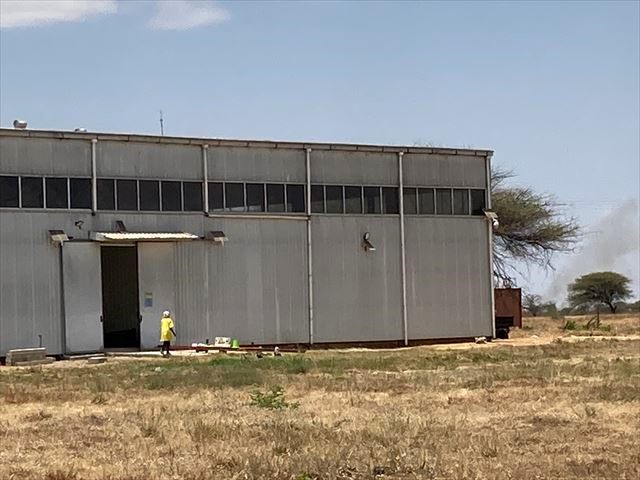 |
| Zonal Office of Tanzania Agriculture Development Bank (TADB) | Processing Plant of Sunflower Oils, One of TADB’s Clients |
August 2023 – February 2024
The Government of Tanzania (GOT) is committed to transforming the development of the agricultural sector in terms of commercialization, improved agricultural productivity and farm incomes. However, the limited number of households, production groups and agribusinesses using agricultural machinery, equipment and facilities and the low rate of agricultural finance loans have been challenges. This study was a feasibility study for the Japanese ODA loan project aimed at facilitating the financial intermediary functions of the Tanzania Agricultural Development Bank (TADB) in relation to agricultural and rural development finance in Tanzania and improving agricultural productivity through the provision of medium and long-term sub-loans to a group of farmers and other beneficiaries in Tanzania. OPMAC acted as a team leader for the study, which included work on business planning for two step loan (TSL), financial institution management and financial analysis, and environmental and social considerations.
Future Cooperation Survey on Energy Efficiency & Conservation (EEC) in Egypt
 |
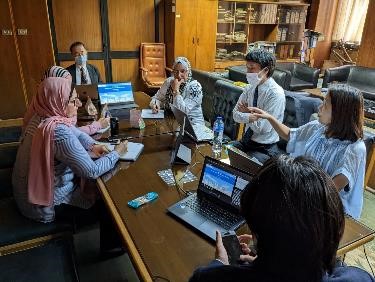 |
| Non-centralized air-conditioning building | Meeting with Counterpart Agency |
2021年8月~2022年11月
In Egypt, the demand for electricity continues to increase in line with economic and population growth, and electricity prices are rising. The increase in electricity prices could have a negative impact on economic activities in the private sector, and in order to mitigate these effects and achieve environmentally sustainable growth, measures such as the realization of energy conservation were an urgent issue. This study examined the overall energy conservation situation in Egypt and explored possibilities for future cooperation in promoting energy conservation.
Preparatory Survey for Project for Reconstruction of Minatobasi
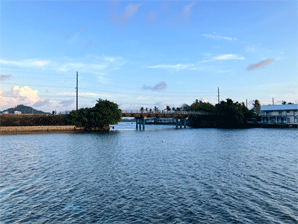 |
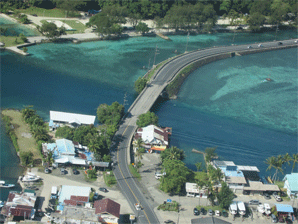 |
| Existing Minatobasi (close view) | Existing Minatobasi (distant view) |
March 2023 to May 2024
The Minato Bridge (‘Minatobasi’) connecting Malakal Island and Koror Island was built in 1979 and has been aging. The concrete has deteriorated significantly due to salt damage, and the danger of collapse and the need for traffic restrictions have been pointed out. Malakal Island has the only commercial port in the country and power plant, and approximately 70% of the total population lives on Koror Island. Since it is one of the most important bridges in Palau, the Preparatory Study was conducted to examine the appropriateness of the project worth extending Japanese Grant Aid and an outline design for the replacement of the bridge. OPMAC's environmental and social safeguard specialist participated in the Preparatory Survey to support implementing the initial environmental examination and developing the abbreviated resettlement action plan.
The Project on Electricity Sector Master Plan Study in Democratic Socialist Republic of Sri Lanka
July 2016 - July 2017
In Sri Lanka, the national electrification rate reached to 96% in 2013 and the power demand has been growing with the recent economic growth. Under such situation, JICA provided technical cooperation for formulation of long-term power master plan by 2040 in order to realize environment-friendly power supply with optimal cost. The OPMAC expert in financial and economic analysis conducted financial analysis of the Ceylon Electricity Board (CEB) and financial simulation by power development scenario and proposed financial strategy to CEB for optimal power source and power system development.
Information gathering and confirmation survey related science and technology vooperation in the fields of environment, carbon neutral, and disaster prevention
March 2022 – February 2023
The Science and Technology Research Partnership for Sustainable Development (SATREPS), a collaboration between JICA and the Japan Science and Technology Agency (JST), is a project in which research institutions in Japan and developing countries work together to conduct international collaborative research using Japan's excellent science and technology and ODA. This study identified research themes/issues that should be prioritised within the framework of JICA's Global Agenda (JGA) in the three areas covered by SATREPS - global scale environmental issues, carbon neutrality and disaster prevention - and compiled them into the JGA Science and Technology Collaboration Policy in order to effectively address the challenges in developing countries through collaboration with SATREPS. Also, a list of research topics / issues related to the proposed JGA Science and Technology Collaboration Policy with the information of researchers in Japan.
Assistance Service on Development of JICA's Knowledge Creation and Capacity Development (KCCP) Program on the Energy and Mining Sector
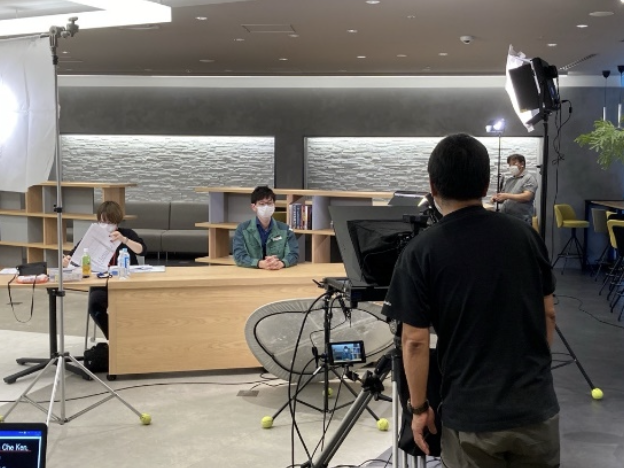 |
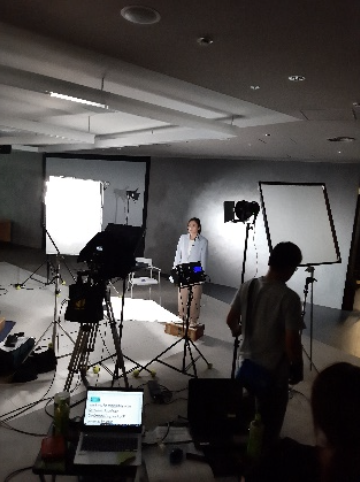 |
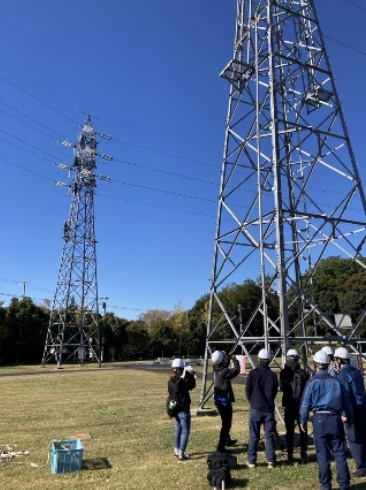 |
| Filming of on-demand training materials. |
March 2021 to March 2022
JICA has been conducting technical training programmes for developing countries as part of technical cooperation under the Knowledge Co-Creation Programme (KCCP). However, the global pandemic of COVID-19 interrupted the implementation of face-to-face training in Japan. In such a situation, JICA introduced a new training policy to use online systems and developed on-demand training courses. In this work, OPMAC developed on-demand training programmes and materials for the energy sector and conducted a pilot on-demand training. In addition, recommendations were made for JICA's technical training programmes.
